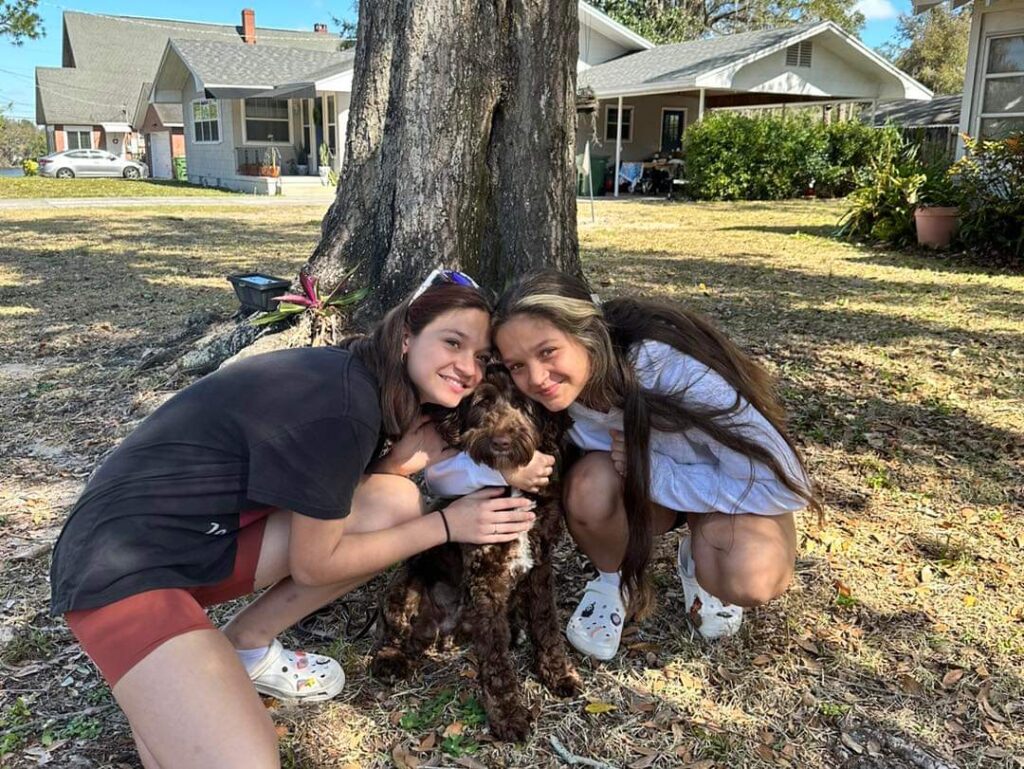This is one of my favorite editions of Central Florida Health News. After all, I’m a huge dog lover, so any time I get to write about the undeniably positive bond between humans and their pets, I’m thrilled.
In this edition, we explore the benefits pets have on our lives, and we go even further to talk about how medical service dogs can change the lives of those with medical conditions.
If you’re a longtime reader, you likely remember former Managing Editor Celeste Walls and her twin daughters — both T1D warriors. I’m excited to share that the Walls family just recently celebrated the homecoming of their service dog, Fitz, a (hypoallergenic!) Australian Labradoodle service dog who is trained to detect dangerous fluctuations in Amelia’s and Cecilia’s blood sugars.
This union has been nearly two years in the making and was made possible through hard work, extensive training, and the power of a community coming together to raise funds.
Though it’s been only a week since Fitz joined their home, he’s already brought hope and peace of mind. After just days with the family, he alerted to a dangerous drop in one of the twins’ blood sugars before the highly advanced monitor she uses even registered the danger.
That’s just the type of advantage the busy family of seven was hoping for when they made the investment to expand their family. Service animals trained to this extent — regardless of the service they are taught to provide — come with a steep price tag ranging from $20,000 to $35,000, but when they’re saving lives and making life more normal, price pales in importance. That’s why the family hopes to get another service animal at some point; so that each twin will have her own dedicated dog as she continues through schooling and creates families of her own.
In just the short amount of time Fitz has been with the family, he’s done his job a million times over.
It’s just one more reason we won’t stop praising the miracles that animals like Fitz introduce into our lives.

